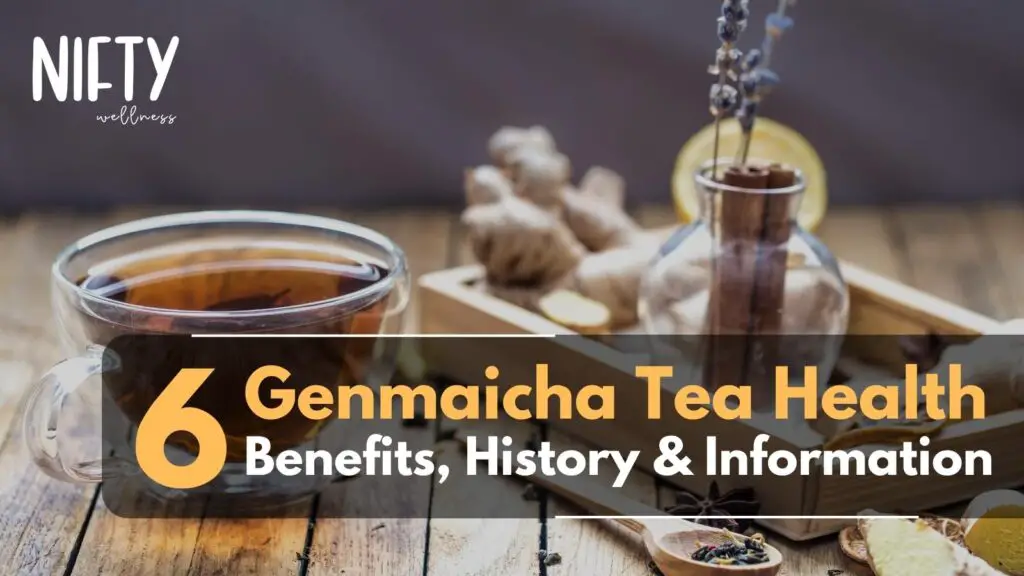Genmaicha tea is a popular Japanese green tea made from green tea leaves and toasted rice. First invented 100 years ago, genmaicha tea was a blend of cheaper Bancha green tea leaves and toasted rice that made tea more accessible to the masses.
But what is it exactly, and how does it benefit your health?
Genmaicha, a beloved Japanese tea, has gained popularity not just for its unique, toasty flavour but also for its array of health benefits. This green tea blended with roasted brown rice offers Genmaicha benefits that extend from aiding in weight management to promoting heart health. What’s more, Genmaicha tea benefits are accompanied by a distinct flavour profile, and it’s a common curiosity whether this tea contains caffeine. In this exploration of Genmaicha, we’ll dive into its history, health advantages, and shed light on the query, “Does Genmaicha have caffeine?”
What Is Genmaicha Tea?
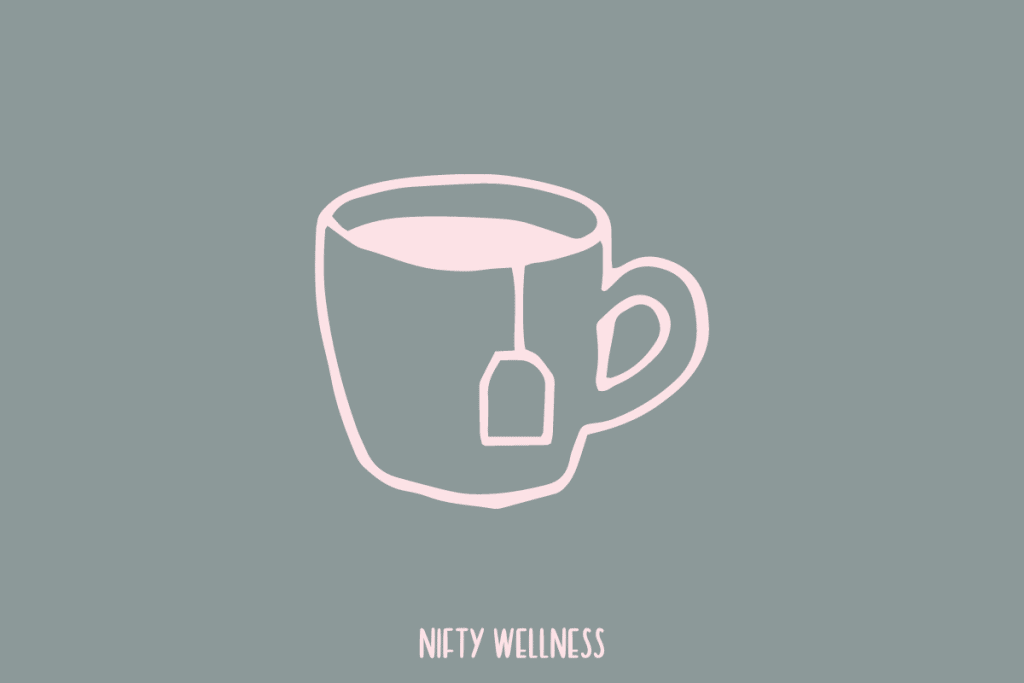

As mentioned, genmaicha tea was a blend of cheaper Bancha leaves and toasted rice in an effort to make tea more accessible to the masses.
Brown rice kernels are added to the green Bancha leaves while they dry so that the rice kernels get crispy and burst open. This characteristic of genmaicha tea gives it its nickname “popcorn tea.”
For some, the popped rice grains are reminiscent of the pleasant, roasted flavor of popcorn.
Though the word genmaicha means “brown rice tea,” it doesn’t need to be made solely from brown rice. Today, genmaicha is most commonly made from mixing roasted brown rice kernels and Sencha green tea.
Sencha is Japan’s most popular green tea, noted for its delicate and refreshing flavor notes.
The flavor profile of genmaicha is unique compared to other green teas. It is a balanced blend of freshness from the green tea leaves and nuttiness from the toasted rice.
This balanced flavour profile makes genmaicha less bitter than other green teas, and it can be served either hot or cold.
Check out our latest blog The Best Loose Leaf Tea for Beginners. Elevate your tea experience and explore the finest varieties, carefully curated for your pleasure.
Health Benefits Of Genmaicha Tea
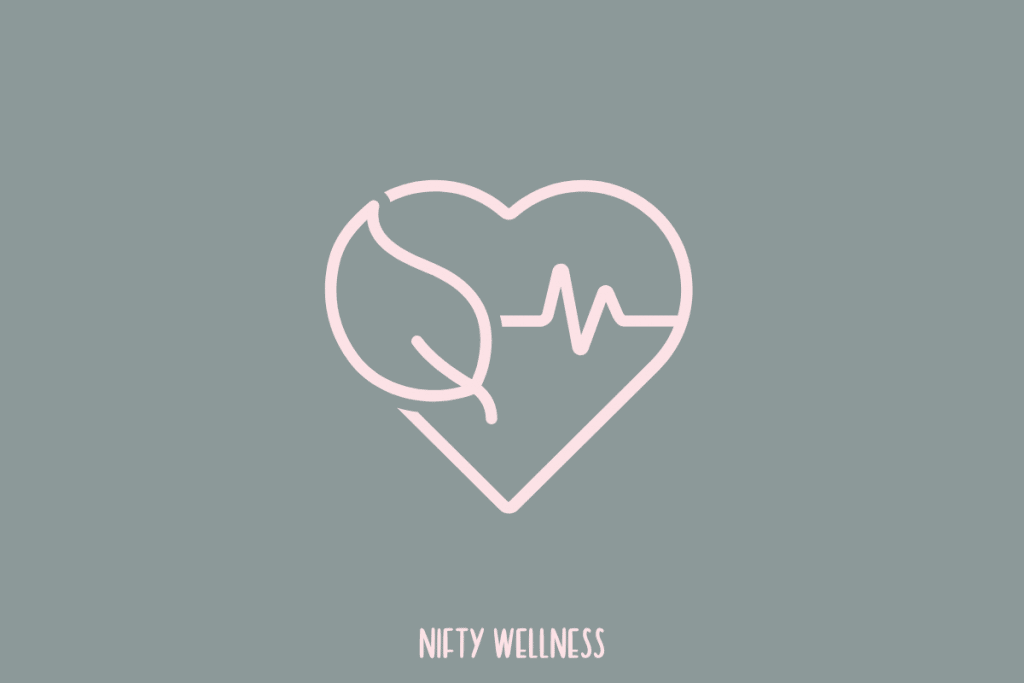
There are numerous health benefits associated with drinking genmaicha or brown rice tea, especially when enjoyed often. Drinking Genmaicha tea can be a delightful way to boost your well-being. This green tea blend is not only a tasty beverage but also offers a range of health benefits. From supporting weight management by aiding digestion to its potential to reduce the risk of chronic diseases, Genmaicha is a cup full of goodness. Additionally, its unique combination of green tea and roasted brown rice provides a soothing effect and a source of antioxidants that contribute to overall health.
High In Antioxidants
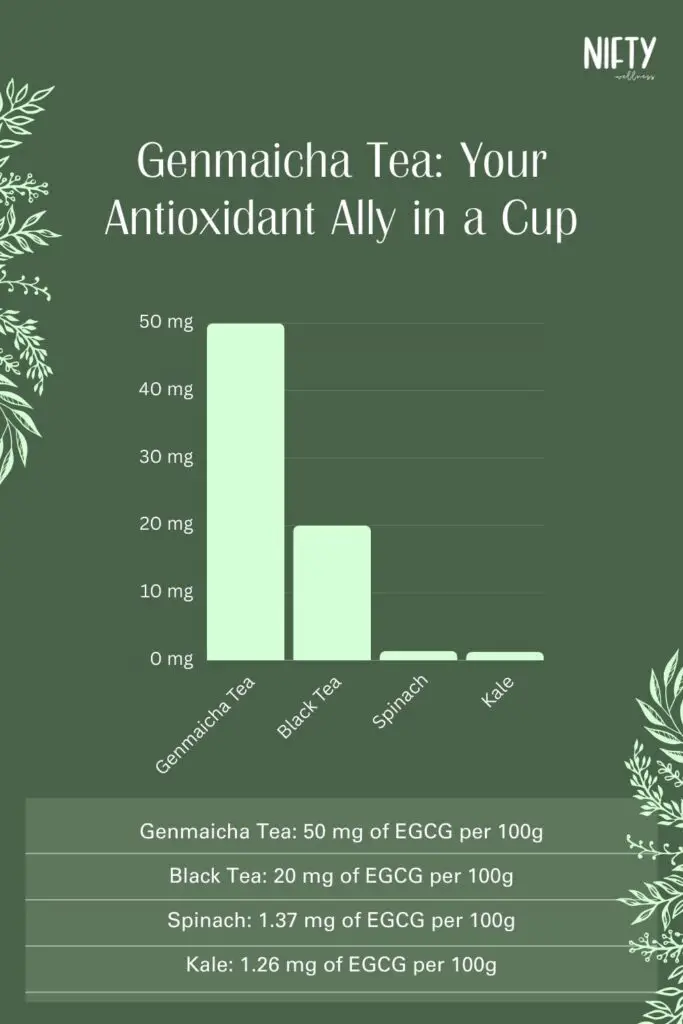
Green tea has long been revered for its high levels of antioxidants that fight free radicals and decrease oxidative stress in the body.
One of these antioxidants is EGCG or Epigallocatechin Gallate, an antioxidant found throughout green teas. This antioxidant protects your cells and body from damage associated with oxidative stress and inflammation.
A 1991 study analyzing the performance of EGCG in five different green teas found that Sencha green tea contained the highest amount of EGCG.
Therefore, consuming genmaicha tea made with Sencha leaves is an excellent way to add the antioxidant benefits of EGCG into your diet.
Other scientific reviews have found green tea to have higher antioxidant levels than black tea and higher antioxidant activity than certain vegetables: kale, garlic, spinach, and Brussels sprouts.
(If you love healthy teas and antioxidants, check out our article about bamboo tea)
Aids In Weight Loss

EGCG, an antioxidant found in genmaicha tea, may also promote weight loss. In addition to balancing blood sugar levels and curbing cravings, EGCG may also induce weight loss by increasing the function of a group of hormones known as catecholamines.
These hormones have been linked to stress, muscle contractions, and fat loss. These fat-burning hormones support the breaking down of fat and glycogen.
While more research is still needed on the influences EGCG has on weight loss, several studies (such as this study examining green tea and sports performance) have associated green tea consumption with thermogenic properties that increase fat oxidation, energy expenditure, and weight loss.
Lowers Risk Of Cancer
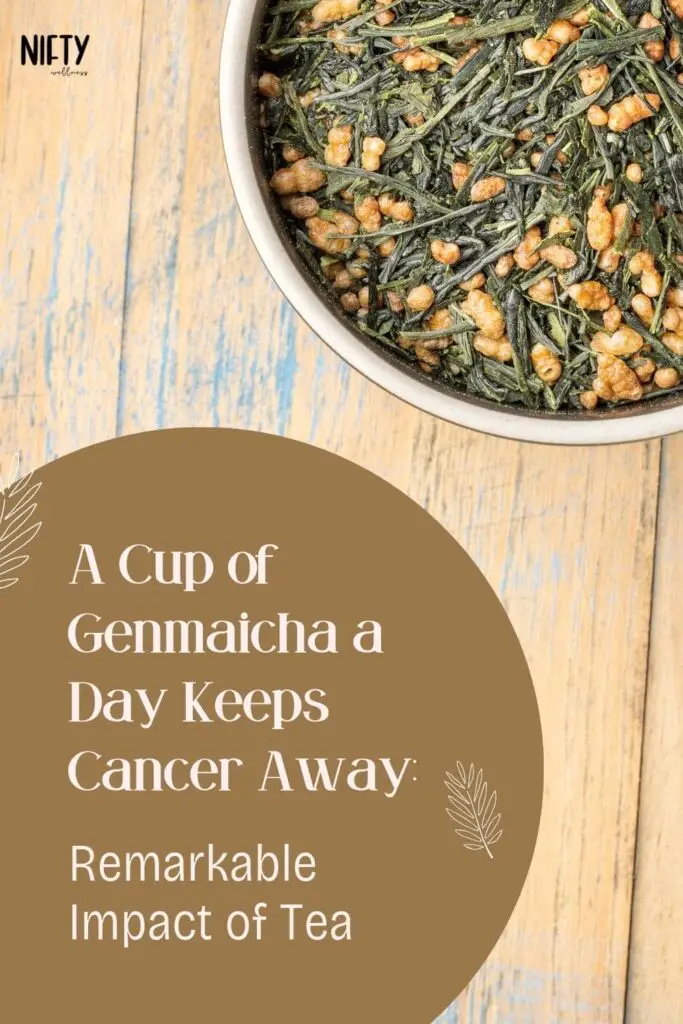
Antioxidants like polyphenols found in green tea have long been studied for their anti-cancer properties. Antioxidant EGCG found in high doses of genmaicha tea also shows promise in lowering one’s risk of several cancers.
One 2007 study examining polyphenols in green tea, specifically EGCG, in response to inhibiting the proliferation of human breast cancer cells found EGCG to have anti-tumor properties.
Additional research examining green tea’s antioxidant powers found EGCG to be the most effective polyphenol for preventing cancer.
Promotes Heart Health
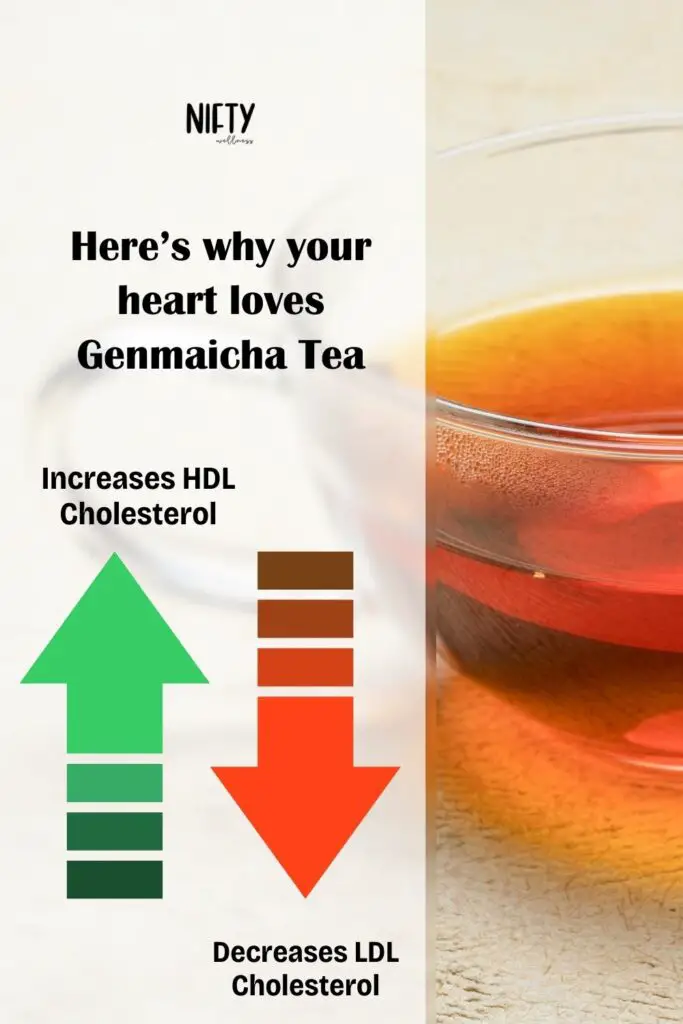
In addition to lowering cancer risks, drinking genmaicha tea can also promote heart health by reducing one’s risk of developing heart disease.
One aspect of this pertains to genmaicha’s ability to increase good cholesterol (HDL) levels while decreasing bad cholesterol (LDL) and thus lowering one’s risk of heart disease.
Numerous studies have examined the links between drinking green teas like genmaicha and developing cardiovascular disease.
One large study of over 40,000 Japanese adults found that those who drank more than five cups of green tea per day had a 26% lower risk of death from a heart attack or stroke than those who drank less than one cup per day.
Genmaicha is also rich in selenium: a mineral found to stimulate blood flow and inhibit the development of blood clots. Thus drinking a cup or two of genmaicha per day can promote heart health.
Encourages Relaxation
This roasted brown rice tea is also known to promote sleep and relaxation. Genmaicha tea contains GABA or Gamma-Aminobutyric Acid, a naturally occurring amino acid that works as an inhibitory neurotransmitter.
GABA works to block or limit specific brain signals and reduce brain activity, thus calming your mind and promoting relaxation.
Fun Fact: Genmaicha tea is one of the few food sources known to contain GABA. Other sources of this amino acid include fermented foods such as kimchi, miso, and tempeh.
Genmaicha tea is also an excellent source of theanine, a major amino acid in tea.
Theanine has been shown to increase the brain’s GABA levels while simultaneously shutting down feelings of worry and improving one’s ability to concentrate and focus.
So, despite genmaicha’s caffeine content, these components explain why many green tea drinkers associate drinking green tea with feelings of calm and focus.
Improves Dental Health
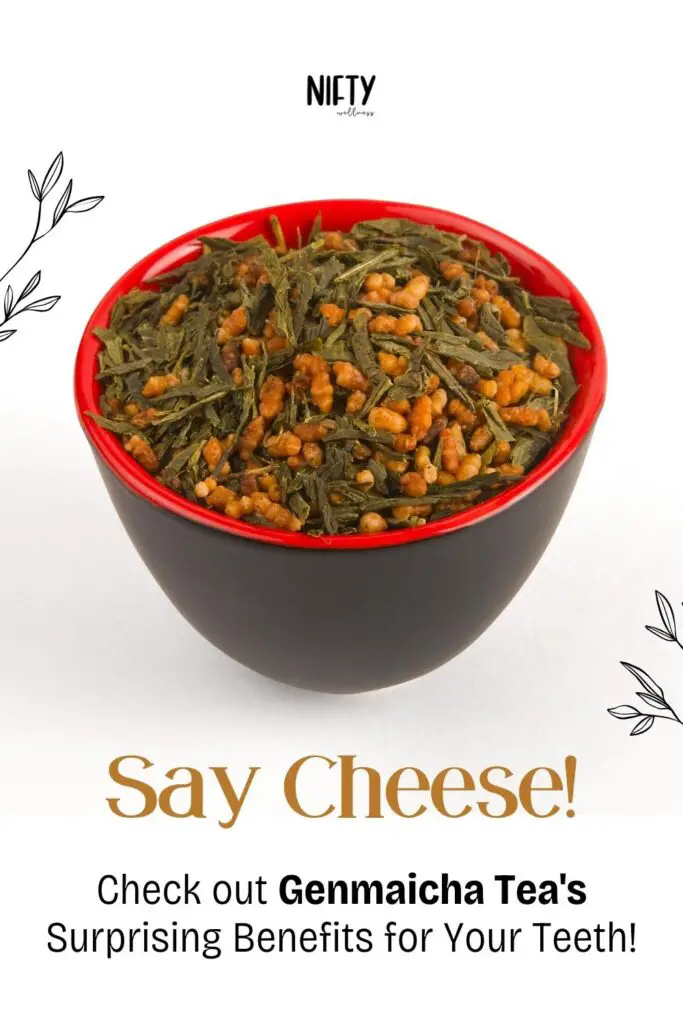
Drinking genmaicha tea may help improve your dental health due to its polyphenols and antibacterial properties.
The anti-inflammatory and anti-cancer role of antioxidants like polyphenols found in genmaicha tea has shown to be paramount for one’s oral health, preventing oral diseases, infections, and reducing inflammation in the mouth and gums.
One study looking at the molecular and cellular effects of green tea on smokers’ oral health found that green tea reduced DNA damage, inhibited cell growth, and more.
Genmaicha tea is also antibacterial, killing bacteria that cause tooth decay, gum disease, cavities, and bad breath. Based on these findings, genmaicha tea is an excellent alternative for coffee or other drinks that do not offer these same benefits.
Read our blog Tea Meditation: Finding Tranquility in Every Sip. Let the gentle embrace of tea guide you to a place of serenity and inner reflection.
Genmaicha Tea Vs Hojicha Tea
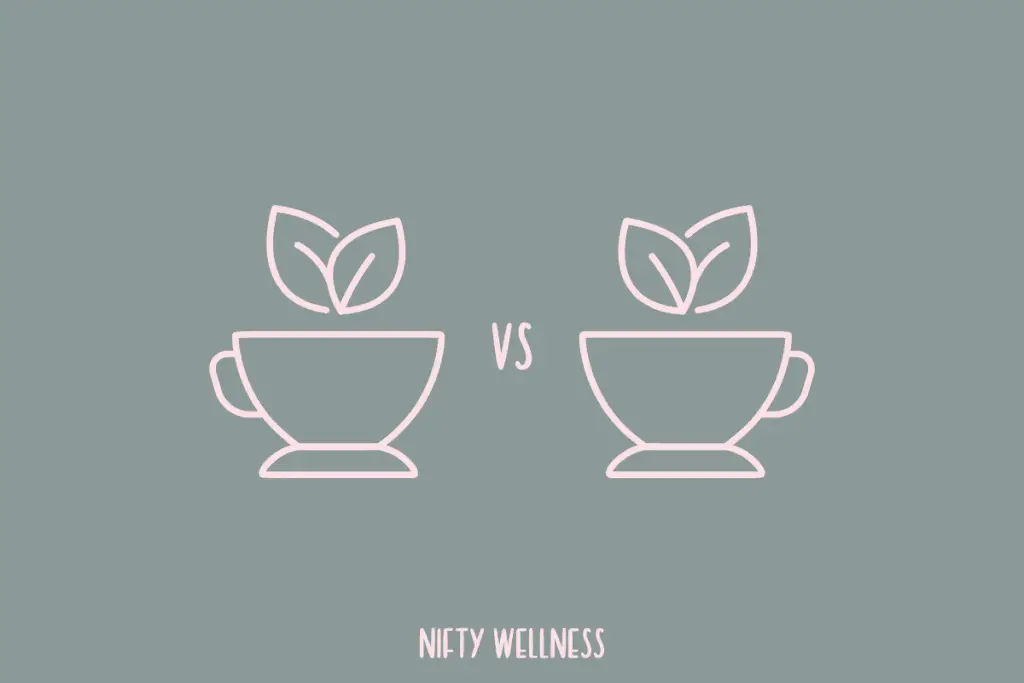
In the realm of Japanese teas, Genmaicha and Hojicha offer unique characteristics to your teatime experience. Genmaicha tea, made from mixing green tea with roasted brown rice, can also be combined with other teas such as hojicha tea.
Hojicha is a Japanese tea made from the roasted stems and leaves of tea plants harvested later in the season. Like genmaicha, this roasted tea has a warm, nutty flavour that is less bitter than other green tea types.
Conclusion
In conclusion, genmaicha tea, with its unique blend of green tea and toasted rice, offers a delightful combination of flavours and an array of health benefits. From its high antioxidant content, potential aid in weight loss, and heart-healthy properties to its relaxing and dental health benefits, genmaicha is truly a versatile and enjoyable tea. Moreover, it’s an excellent alternative for those looking to reduce their caffeine intake without compromising on taste or health advantages. And when considering the choice between genmaicha and hojicha, both roasted teas bring warmth and richness to your teacup, making it a delightful journey for tea enthusiasts.
Frequently Asked Questions
Does Genmaicha Contain Caffeine?
Because genmaicha is a green tea, it does contain some amounts of caffeine, but the caffeine content is relatively low compared to other green teas.
The ratio of brown rice to green tea leaves, in part, affects how much caffeine your brew will have. The more brown rice that the tea contains, the less caffeine.
On average, an eight-ounce cup of genmaicha contains 17–18 milligrams of caffeine, compared to different green teas that can have anywhere from 35 to 50 milligrams.
Genmaicha can be blended with a variety of different green teas. Genmaicha made with a Bancha green tea will contain less caffeine than genmaicha made with Sencha leaves or those blends enhanced with matcha green tea.
How Much Theanine Is in Genmaicha Tea?
Theanine, the relaxing water-soluble amino acid, is found in all teas, including genmaicha.
A 2016 study found that green teas such as genmaicha contain about 6.56 mg per gram of tea leaves, an amount higher than white, oolong, or black teas.
Is Theanine The Same as Caffeine?
While theanine, or L-theanine, and caffeine are beneficial components of green tea, primarily due to their effects on the body’s central nervous system, they are very different.
Theanine is not the same as caffeine. The two different compounds produce opposite effects in the body: caffeine is a stimulant that promotes alertness, while theanine has a relaxing effect on the mind and body.
Even though these two are opposites, their effects are complementary, as some studies have shown that together, theanine and caffeine can benefit overall cognition and mood when appropriately balanced.
Is Genmaicha Tea Good for You?
Genmaicha tea is a perfect tea for improving your overall health, and those who drink it regularly can see numerous health results.
Genmaicha tea is high in antioxidants that prevent diseases such as cancer and heart disease, lowers blood pressure, and can benefit the mind and body by calming the nervous system.
Does Genmaicha Tea Have Calories?
Genmaicha tea does not contain any calories. It also contains zero grams of fat, protein, and carbohydrates.
Genmaicha tea is relatively high in vitamins such as B-complex, C, and E, and minerals such as copper, selenium, and manganese.
When Should I Drink Genmaicha?
Because of its low caffeine levels and relaxation effect (thanks to compounds like GABA and theanine), genmaicha can be enjoyed any time of the day.
Genmaicha’s beneficial effects on blood sugar levels and weight loss also make this a great tea to enjoy before, during, or after a meal to decrease blood sugar levels, stimulate fat burning, and control increases in bad cholesterol.
